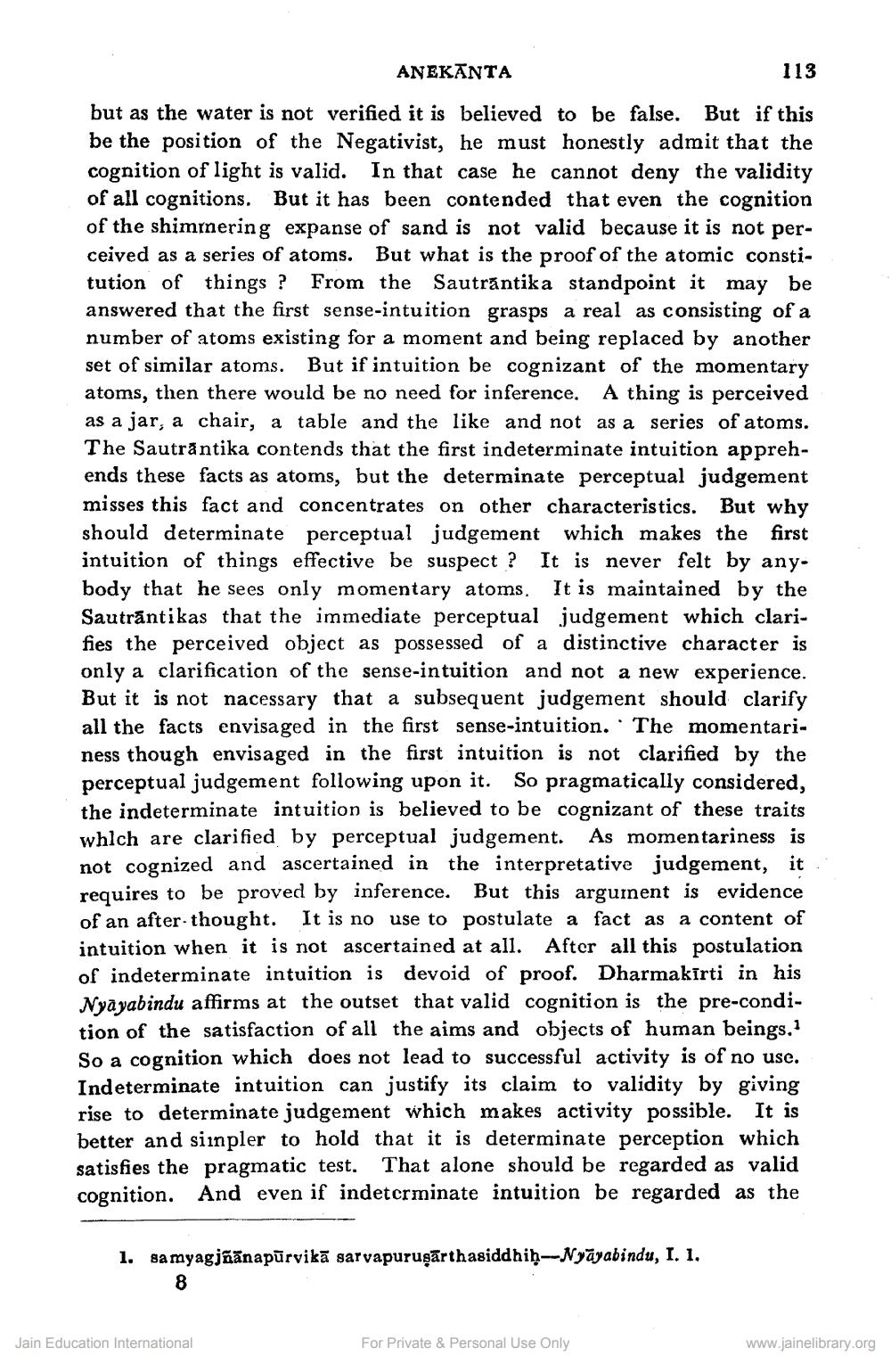________________
ANEKĀNTA
113
but as the water is not verified it is believed to be false. But if this be the position of the Negativist, he must honestly admit that the cognition of light is valid. In that case he cannot deny the validity of all cognitions. But it has been contended that even the cognition of the shimmering expanse of sand is not valid because it is not perceived as a series of atoms. But what is the proof of the atomic constitution of things ? From the Sautrántika standpoint it may be answered that the first sense-intuition grasps a real as consisting of a number of atoms existing for a moment and being replaced by another set of similar atoms. But if intuition be cognizant of the momentary atoms, then there would be no need for inference. A thing is perceived as a jar, a chair, a table and the like and not as a series of atoms. The Sauträntika contends that the first indeterminate intuition apprehends these facts as atoms, but the determinate perceptual judgement misses this fact and concentrates on other characteristics. But why should determinate perceptual judgement which makes the first intuition of things effective be suspect ? It is never felt by any. body that he sees only momentary atoms. It is maintained by the Sautrântikas that the immediate perceptual judgement which clarifies the perceived object as possessed of a distinctive character is only a clarification of the sense intuition and not a new experience. But it is not nacessary that a subsequent judgement should clarify all the facts envisaged in the first sense-intuition. The momentariness though envisaged in the first intuition is not clarified by the perceptual judgement following upon it. So pragmatically considered, the indeterminate intuition is believed to be cognizant of these traits which are clarified by perceptual judgement. As momentariness is not cognized and ascertained in the interpretative judgement, it requires to be proved by inference. But this argument is evidence of an after thought. It is no use to postulate a fact as a content of intuition when it is not ascertained at all. After all this postulation of indeterminate intuition is devoid of proof. Dharmakīrti in his Nyayabindu affirms at the outset that valid cognition is the pre-condition of the satisfaction of all the aims and objects of human beings, So a cognition which does not lead to successful activity is of no use. Indeterminate intuition can justify its claim to validity by giving rise to determinate judgement which makes activity possible. It is better and siinpler to hold that it is determinate perception which satisfies the pragmatic test. That alone should be regarded as valid cognition. And even if indetcrminate intuition be regarded as the
1. samyagjñānapūrvikā sarvapuruşārthasiddhih-Nyāyabindu, I. 1.
Jain Education International
For Private & Personal Use Only
www.jainelibrary.org




